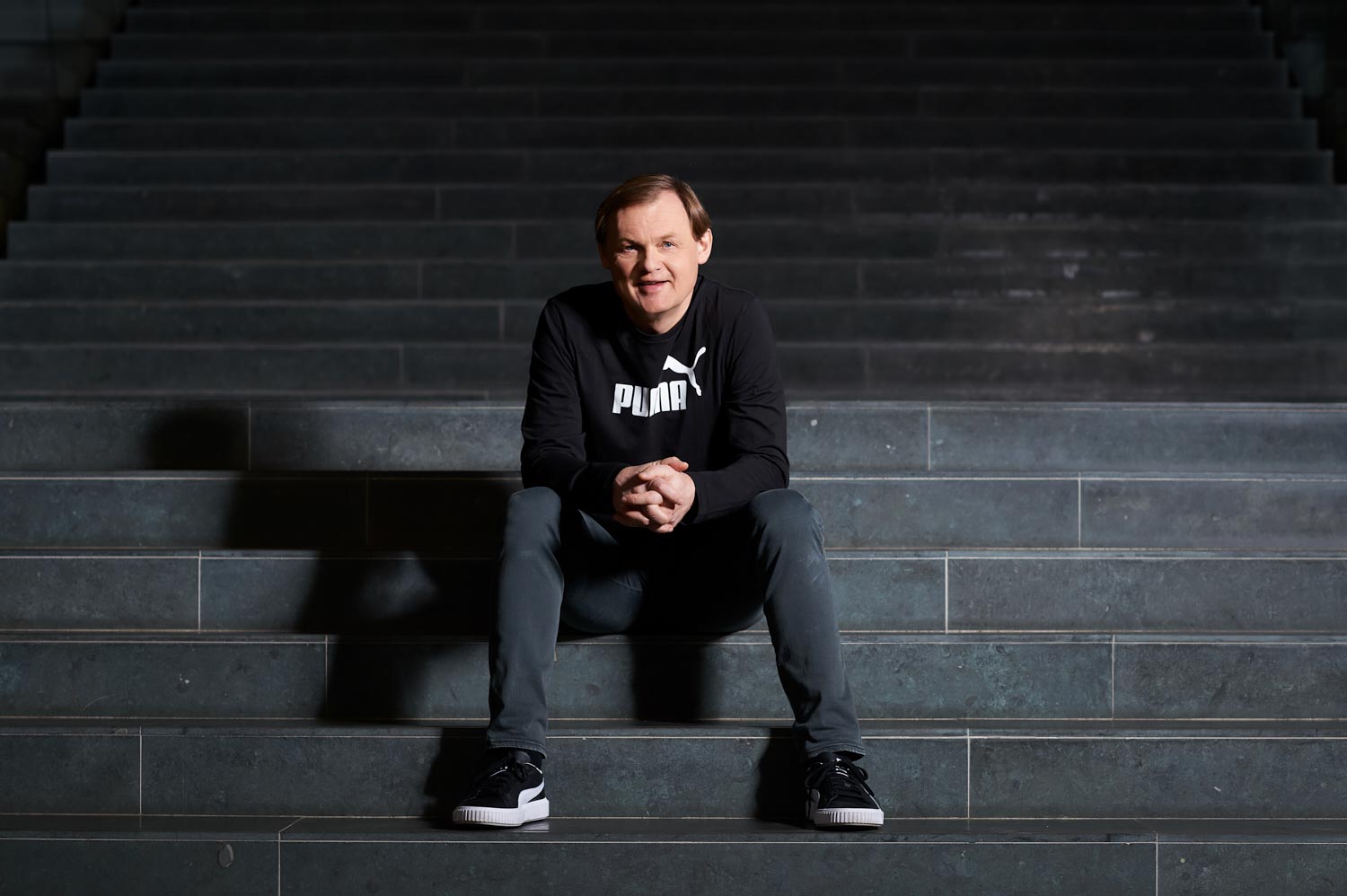
This letter would have been much easier to write three months ago. We had just finished the best year in PUMA’s company history, with €5,502 million in revenues and €440 million in EBIT - the highest that PUMA has ever achieved. We had double-digit growth in all regions and in all divisions. All business units reported growth and we felt the PUMA brand had become stronger in all markets around the world. Our order book for 2020 was very positive, with strong and balanced growth in all regions, so we were really looking forward to this year. January started well with strong wholesale numbers, a strong eCommerce performance and record sales in our owned and operated stores. Then, in the last week of January, in the middle of the Chinese New Year celebration, COVID-19 hit the city of Wuhan in China. The Chinese market, both for retail and production, basically shut down. Over the next six weeks, the whole business in China, except for eCommerce, basically disappeared. Other Asian markets, especially those which normally have a lot of Chinese tourists, were also heavily impacted. Our focus was to ensure that our staff in China was safe, to solve the supply chain issues by ensuring deliveries from other sourcing countries, and to limit the financial damage of the retail shut down in the domestic Chinese market. Our sales in the rest of the world were very strong and none of us expected COVID-19 to develop into a global pandemic.
We were wrong. As China started to recover in mid-March, the virus had started to spread globally and by the end of the month basically 80% of our retail doors, both owned and operated as well as partner stores, were closed. Most retail partners had also closed their warehouses and did not accept shipments anymore. The only channel that continued to work was eCommerce. Direct to Consumer (DTC) eCommerce, although it is growing at almost 50%, is nowhere close to be able to compensate for the lost business within offline channels, as it is less than 10% of our business in normal times. The COVID-19 pandemic had hit a quarter that would have otherwise been great.
This development has basically continued in April. While the Chinese market is recovering and some other Asian markets, like South Korea and Japan, are slowly improving, the rest of the world has still basically shut down for the sales of sport and sport lifestyle products.
There have been some store openings in the Netherlands, Austria and Germany, while in Sweden, stores have been open the whole time. But it is still far too early to talk about any recovery. The industry is in a crisis where basically 70-80% of the retail space is closed, where almost all organized sports activities have stopped and where global consumers are very worried about their health.
Our PUMA mantra to manage this difficult situation has been from the beginning “To manage the crisis in the short term without hindering the mid-term momentum”.
This means to first survive this phase of little revenue, then recover and stabilize the business in the markets and channels that are opening up again, and then finally utilize PUMA’s momentum to achieve growth again for 2021.
In order to get through this crisis, we are working closely with all our partners such as retailers, suppliers, landlords, banks and authorities. We are reducing costs and cash outflows wherever possible as well as securing additional financing to ensure that we, together with our partners, can sustain the value chain in this period. Suspending dividend payments and suspending the Management Board’s salary by 100% for now as well as reducing salaries of our senior management between 25% -35% are essential measures to achieve additional financing given the circumstances.
I am very impressed by how all of our employees and most of our partners have cooperated in these difficult weeks. Our goal is to survive this crisis together.
We are currently creating and distributing a lot of digital content to stay connected with our customers. This also increases the traffic to our PUMA eCommerce platforms. We are also in the process of finalizing the Spring/ Summer 2021 product range, where we will ensure that we can sell in the collections digitally to all our retail partners. We have not reduced investment in product development, and we will present full new ranges in all categories and all divisions both for Spring/ Summer 2021 and Autumn/ Winter 2021.
I am convinced that our industry will be very strong after the crisis. People will probably do even more sports than before. Health and a healthy lifestyle will be more important and the impact of global sports brands on global fashion will, in my opinion, be even greater than before. The crisis will change the landscape, but those brands that survive will be in a relatively stronger position than before.
And PUMA will be strong. The fact that 2019 was the best year in PUMA‘s history has put us in a better position to manage this crisis. All regions and all product divisions contributed with a double-digit sales growth, which underlines the ongoing successful execution of our FOREVER FASTER strategy and demonstrates PUMA’s enormous potential. On our way towards becoming the Fastest Sports Brand in the world, we have further refined our strategic priorities. In addition to brand heat and desirability, a competitive product range, a leading offer for women, improved quality of distribution, organizational speed and building our sports performance credibility in the US through our re-entry into Basketball, we have now added communicating sustainability and a focus on local relevance as two further strategic objectives.
Sustainability has been deeply embedded in our processes and is a big part of how we work every day. We have been acting in a sustainable way, but have not been vocal enough about it. For consumers worldwide, sustainability has become more important, so we will also make our actions more visible. In 2019, we already reached nine out of our 10FOR20 sustainability targets and developed our next set of targets for 2025, which we are announcing in this report.
In February, we launched a sportswear collection made from recycled plastic in collaboration with recycling company First Mile. The shoes and apparel are made from recycled yarn that is manufactured from collected plastic bottles.
Local relevance is key in our industry and is gaining importance every day. Different countries have different sports that people follow and participate in. For us, it is key to be a part of that everywhere. One of the best examples of local relevance is our partnership with Virat Kohli, the captain of the Indian cricket team. Cricket is by far the most relevant sport in India and by partnering with Virat, we gain credibility as a sports brand in the Indian market. Netball and Australian Rules Football are relevant sports in Australia and New Zealand. Rugby plays a major role in South Africa, whereas Handball is followed in vast parts of Europe.
In PUMA’s first full NBA Basketball season after our comeback in 2018, Toronto Raptors shooting guard Danny Green was the first PUMA athlete to win the NBA Finals since Isiah Thomas in 1990. With the support of JAY-Z, our Creative Director for basketball, we continued to launch additional performance basketball shoes and signed new highly talented NBA players such as RJ Barrett (New York Knicks), Kyle Kuzma (Los Angeles Lakers) and Marcus Smart (Boston Celtics).
In 2019, PUMA further improved its brand heat and desirability among consumers and accounts. We continued to work with relevant influencers on a global as well as local basis and further expanded our sports endorsements, such as entering into partnerships with the football clubs Manchester City, and Valencia CF.
In track and field, the World Athletics Championships in Doha were an important event for our 115 athletes and 12 national federations with Norwegian hurdler Karsten Warholm successfully defending his title over 400 metres hurdles. In Motorsport, we signed a long-term agreement with Porsche as well as a separate collaboration with Porsche Design to create premium lifestyle products.
We added another bestseller to our Footwear offer, the RALPH SAMPSON, a classic basketball silhouette. This underpins that we are generating credibility in basketball, which we have leveraged into other categories. The RS-X-franchise continued to resonate well with our customers, as did the CALI franchise, presented by PUMA’s ambassador Selena Gomez. Other key styles included the PUMA FUTURE football boot and running & training shoes based on our LQD CELL and HYBRID technology platforms. In the fourth quarter, we launched the RS-X3, CALI SPORT and the RIDER, which is inspired by one of the jogging shoes launched in the 1980s. Creating a leading product offer for women remains a priority for PUMA and we have capitalized on this growing segment in the global sportswear market. We continue to see more and more women taking up sports worldwide. Athletic wear has long made its way into everyday outfits. “Where the gym meets the runway” continues to be the theme for our initiatives in the women´s segment.
PUMA improved the quality of its distribution and expanded its presence in key sports performance and Sportstyle accounts around the world, in part by strengthening our relationships with key retailers by being a flexible and service-oriented business partner. We also upgraded our owned-and-operated retail store network with further refurbishments and in August, we opened our New York flagship store on Fifth Avenue.
We continued to invest in our distribution and logistics network. Our new highly automated multichannel distribution center in Geiselwind, Germany is expected to be operational in early 2021 as planned. A new, also highly automated distribution hub just outside of Indianapolis will enter operations later this year.
There is no question that the issues and uncertainties associated with the COVID-19 pandemic present major challenges for PUMA and will have an impact on our short-term performance. However, there will be a time after COVID-19 and we believe strongly that the future of the sporting goods industry and for PUMA, in particular, is bright. Positive underlying trends such as increasing sports participation and more casual wardrobe remain steady or will even accelerate as a result of the crisis. I am extremely proud of our employees and for their spirit with which they are working through this crisis. I also recognize that for you as shareholders this is a tough time. Therefore, I want to thank you, our shareholders, for your continuing support, your confidence and above all for your trust.

Bjørn Gulden
Chief Executive Officer PUMA